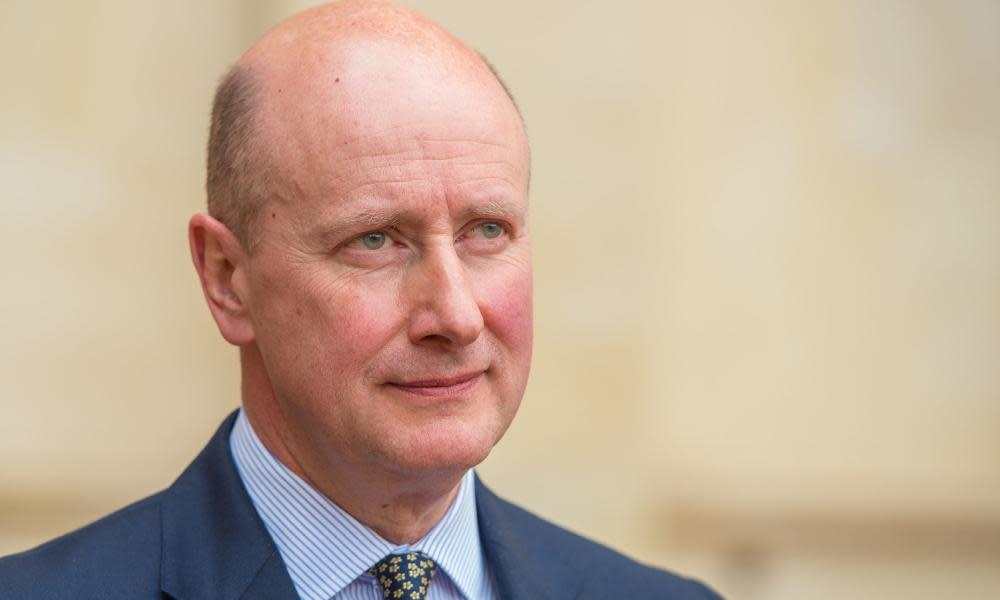Profile: the ethics adviser challenged with investigating the PM

When Lord Geidt was appointed as ethics adviser to Boris Johnson a year ago, he was described by one former colleague as “the most discreet man you could ever meet”.
And so he has proved himself in the role – shying away from making a judgment on whether Johnson broke the ministerial code, and subsequently resigning in private, without publishing his reasons.
The former private secretary to the Queen, who is still her permanent lord in waiting, would have had to draw on reserves of diplomacy and ability to navigate intrigue during his time at the palace.
But his year-long post working for Johnson may have been an even greater challenge, after being tasked with investigating scandals involving the prime minister himself.
Born in London in 1961, Geidt was educated privately in Oxford and Scotland before studying at Trinity Hall, Cambridge, and later at Sandhurst, after enlisting in the Scots Guards.
He was subsequently appointed to an army intelligence post, and he served as private secretary to the UN secretary general’s special envoy to the Balkans, Carl Bildt.
“Suave and charming, very proper, clipped and British with a regimental tie, but also with a touch of the spook about him,” was how one former colleague described him to the Guardian in 2013.
And in one strange episode earlier in his career, he won substantial damages after he and a fellow army colleague brought a 1991 libel action against Central TV and the journalist John Pilger over a documentary that they said accused them of having been SAS members training Pol Pot’s Khmer Rouge.
But the Labour MP Bob Cryer used parliamentary privilege to query why Geidt had turned up on a mission to observe Vietnamese troops pull out of Cambodia in 1989. “Surely not MI6?” asked Cryer during a Commons debate.
A spokesperson for Buckingham Palace has previously said: “He didn’t comment on the accusations at the time and, as then, he will let the legal judgments speak for themselves. We won’t comment on the questions relating to [Geidt’s] work before joining the royal household.”
He stepped down from his royal role in 2017 after a reported power struggle over the plans for Charles’s succession, and he became Lord Geidt of Crobeg in the County of Ross and Cromarty.
After that, he took on private sector interests, including chair of a board of the investment firm Schroders, and an advisory role at BAE Systems until April last year. He is also chair of the council of King’s College London (KCL), where academics called for him to step aside from his role last year alleging potential conflicts with his private interests were not properly managed – which the university denied as “untrue”.
Despite criticism from some quarters for staying in his role advising Johnson for so long, he has won admiration from some in politics who got to know him. Chris Bryant, the Labour MP and standards committee chair, on Wednesday night described him as “one of the most honourable men I have ever met”.

 Yahoo News
Yahoo News 
